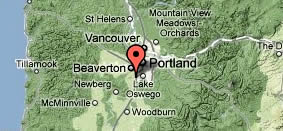We have new reports this week that Oregon lawyers are being targeted by scammers. You can find details on the FBI’s website in a post entitled “U.S. Law Firms Continue to be the Target of Counterfeit Check Scheme.” The post also includes a link to a government site where you can report an attempted scam email.
One of the easiest things lawyers can do to safeguard funds and ensure they do not become the victim of the check scams is to implement protocols for waiting a period of time before disbursing funds from trust accounts. Waiting 10 business days is still a good rule of thumb for most funds received. Understand that just because your bank makes funds available for withdrawal does not mean that your bank has actually collected the funds from the issuing bank. In other words, just because your bank allows you to make a withdrawal doesn't mean that they can't come back later and demand return of the funds because the check was dishonored by the issuing bank. To be certain about whether the funds have been collected, call the paying bank. Also, understanding how exactly checks are processed and money is moved through financial institutions goes a long way to avoiding fraud. See http://www.occ.treas.gov/ftp/bulletin/2007-2.html.
From May 2010 Bar Counsel Column: Scammers Take Aim at Lawyers
The first thing lawyers can do to avoid becoming a victim is be aware that scammers are targeting lawyers. Be particularly cautious when receiving unsolicited, unexplained emails from foreign countries. Remember that the scam artists are likely to use the names of actual companies, attorneys and banks. Thus, lawyers should independently verify the names and contact information provided to them and be wary of individuals who are reluctant to provide contact information other than an email address or phone number. Lawyers might also check out websites that track internet scams, such as www.scamwarners.com and http://lawyerscam.blogspot.com.
Second, upon receipt of a check, consider whether it might be counterfeit. The Internet Crime Complaint Center recommends that lawyers inspect the check carefully to ensure:
¥ The amount of the check matches in figures and words
¥ The account number is not shiny in appearance
¥ The drawer's signature is not traced
¥ Additions, deletions or other alterations have not been made to the check
In addition, obtain the bank's telephone number from an independent reliable source and contact the financial institution on which the check was drawn to ensure legitimacy.
Finally, lawyers should not disburse deposited funds until the bank on which the check is drawn clears the check.
From June 2010 Bar Bulletin: Scam Update:
Do not assume that an email is legitimate business simply because the sender claims to have been referred to you by someone you know. (And if you receive questionable requests for referrals, don't sic these scammers on your colleagues.) Instead, if it smells fishy, inquire further. In addition to the resources cited in the May article, local bar associations and other professional organization list serves (e.g. OTLA, OWLS) may be helpful in determining whether a particular email is likely to be a fraud. Lawyers might also check with the Oregon Department of Justice Financial Fraud Division to determine whether the email they received mirrors scams reported by others. Because these matters typically involve activity outside of Oregon's jurisdiction, DOJ refers them to the Secret Service. The Portland Secret Service office can be reached by calling 503-326-2162.

